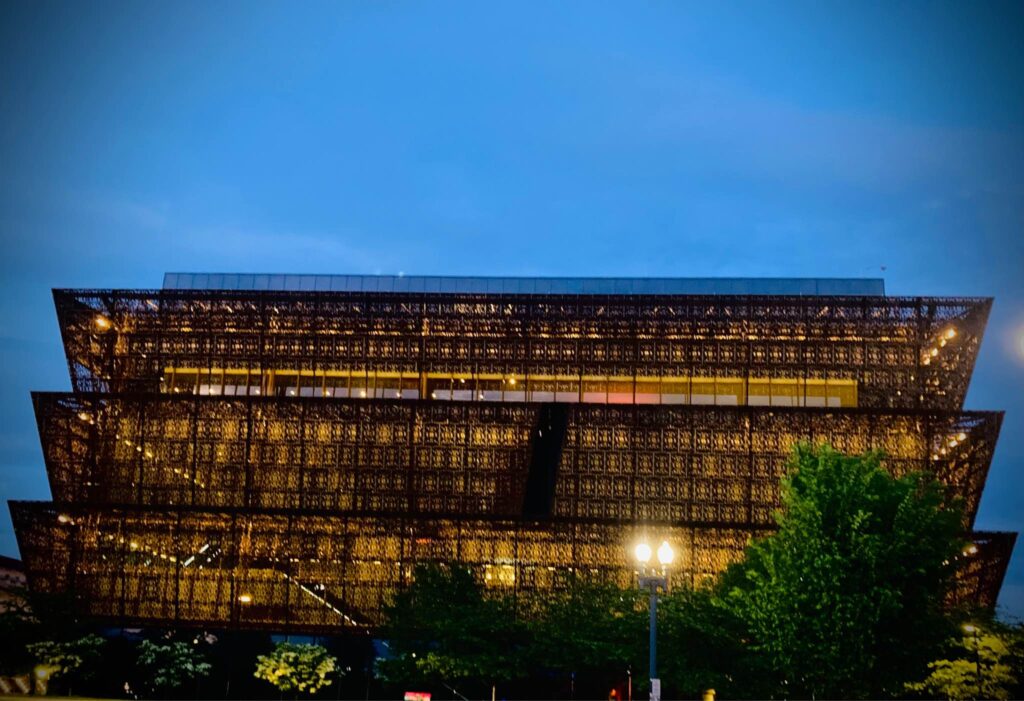
I’m still resonating with the messages of unconquerable strength, love, power, and pride that surrounded me at the National Museum of African-American History and Culture last week. It’s not for me as a white woman to define what “the Black experience” is or what it means. That said, it *is* my work to try and find words to tell you what I think I’m learning. Here’s the best I can do right now, and I welcome your thoughts as always, my friends:
Our country’s love of freedom should – SHOULD – mean that we lift up the Black experience as an incredibly inspiring example of the best that America can offer.
This goes way beyond MLK and Rosa Parks. I’m talking about the examples set by all the unknown, unsung Black folks who have held onto freedom in their hearts, day by day for centuries upon centuries, up through the present day. Even when their bodies have not been “legally” their own, in enslavement or incarceration. Even when every act of personal dignity, every insistence on basic humanity might be – and still sometimes is – a rebellion punishable by death.
If a foreign power came to our shores and imposed upon us an unjust system that denied our basic rights and humanity, we as Americans would pride ourselves on fighting it for generations. For as long as it took to get free. It would become THE story we tell ourselves about America’s indomitable love of freedom. We’d tell it over and over, in children’s history books and political stump speeches and in our patriotic songs, forever.
We have the option to see the story of Black people in America as embodying our highest and best values as a nation. To learn how that’s true, and to honor it. To honor both the truth and the learning we must do in order to acknowledge it. We could do that, as a nation.
Some Americans know how to do that already. Luckily for the rest of us, they made a museum to help us along the way. May it do its work over generations.
May we do our work over generations. Each of us. All of us.
Onwards. ![]()